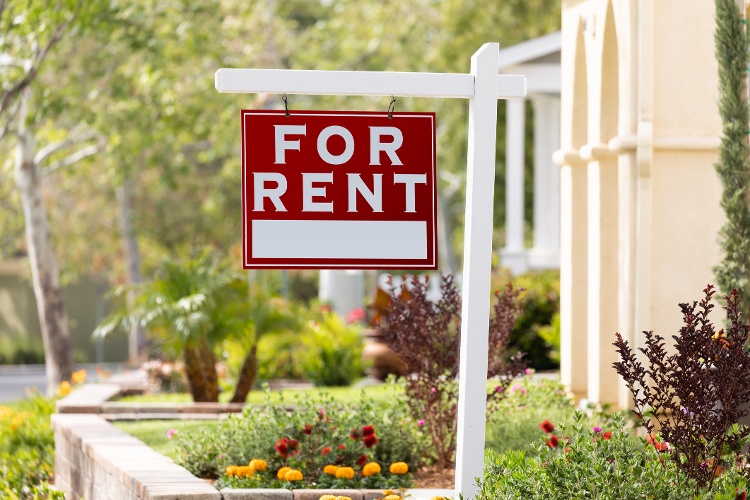
Inheriting a rental property can be a mixed blessing.
On the one hand, you have a profit windfall from rental income and instant equity in the property. On the other hand, handling your inherited rental property the wrong way can create a big tax bill that takes a big bite out of the profits you thought you had.
In this article we’ll look at what happens when you inherit a rental property, along with your legal, tax, and investment options.

Consequences of Inheriting a Rental Property
There are major consequences to inheriting a rental property that you need to be aware of:
- What to do with your inherited rental property
- Financial obligations such as paying property taxes and outstanding debt
- Legal responsibilities of the landlord-tenant law in the area your new rental property is located in and maintaining the property to meet current zoning regulations
- Potential tax liabilities such as estate taxes or capital gains if you decide to sell
Now it’s time to understand your available options.
Option #1: Keep the property and collect the monthly income
This is the path of least resistance, and also the option that’s potentially the most profitable, especially if your inherited property is already rented to a qualified tenant. In addition to regular cash flow you also benefit from appreciation in market value of the long term.
The tradeoff is that as a landlord you’ll also be responsible for handling tenant issues and conducting repairs. Instead of trying to manage the property yourself, hire a property manager to handle the day-to-day issues of rental property ownership.
Option #2: Sell the inherited property right away
On the other hand, not everyone wants to own income-producing real estate. Sometimes people who inherit property decide to cash out and pay off outstanding debts or fund a college savings plan.
But, how do you sell an inherited rental property that’s already rented to a tenant?
Tenants have the right to stay until their lease ends – even if you weren’t the one to sign the lease. One option is to work out a deal with the tenant by paying them an incentive to leave early. After that, you could list the property with a local real estate agent on the MLS.
The other way to sell your inherited rental property right away is to keep the tenant and list the property for sale on the Roofstock Investment Property Marketplace.
There are a lot of real estate investors looking for good turnkey rental property that’s already leased. In fact, depending on the real estate market, you could make a bigger profit by selling your inherited property as an income investment on Roofstock instead of selling it on the MLS or trying to sell it yourself.
Option #3: Sell eventually when the time is right
You can always keep the rental property and see if you like being a real estate investor. If you do, you can always grow your investment portfolio by doing a cash-out refinancing on your inherited rental to raise capital to buy more income-producing real estate.
Of, you may want to wait and see what happens with the real estate market and how the market value of your inherited property is affected. Figuring out how much a rental property is worth can be a bit tricky because you have to consider not only the comps in your local area but also factor in the income your inherited property is generating.
Option #4: Move into your inherited rental property
Finally, you can keep the property and move into it after the tenant leaves.
Keep in mind that many cities have laws that are more friendly to the tenant than the landlord. In fact, there are some real estate markets where if you don’t renew a tenant’s lease you can be liable for damages.
So, before you decide to move in, be sure to speak with a local real estate attorney to learn what the landlord-tenant laws are like for the market your inherited rental property is located in.

Renting Out an Inherited Rental Property
If you don’t currently own rental real estate, keeping your inherited property is a good way to get into the business. Or, if you’re already a real estate investor, adding your inherited rental property to your real estate portfolio increases passive income while putting you one step closer to financial freedom.
Regardless of which option you choose, there are a few things to keep in mind if you decide to keep renting out an inherited rental property:
Tax benefits
Because your inherited rental property is treated as an investment property by the IRS, you’ll be liable for paying capital gains tax when you sell the property. However, you can defer paying capital gains tax by conducting a 1031 exchange to replace your inherited rental property with another investment property.
The IRS also treats the rental income you receive from your inherited property as earned income which is sometimes taxed at a different percentage rate from any regular income you receive from a job.
You can reduce the amount of earned income subject to tax by deducting business and operating expenses for the property out of the gross rent you receive from the tenant.
Landlord responsibilities
Keeping your inherited rental property as a rental also means you’ll have new responsibilities as a landlord.
While being a landlord is a good way to learn the real estate business, almost all real estate investors hire a professional property management company to take care of their investments.
A property manager handles the daily details such as leasing and rent collection, repairs and maintenance, and paying bills and property taxes. At the end of each month you’ll receive a check for your net income, which is what professional real estate investors refer to as “passive income.”
Legal considerations
It’s a good idea to transfer your inherited rental property into an LLC (limited liability company). One of the biggest potential drawbacks to owning investment real estate is that there are more legal issues to consider, such as a guest of the tenant deciding to sue you because they had an accident at your property.
An LLC can provide an additional layer of protection against a frivolous lawsuit by keeping your personal assets separate from your inherited rental property and any other business assets you may already have.

How to Sell an Inherited Rental Property
One of the most important financial issues you’ll face if you decide to sell your inherited rental property instead of keeping it is a big tax bill.
Here’s how to sell an inherited rental property and keep more of the profit for yourself:
- Take advantage of the “step up” value to avoid capital gains tax if you plan to sell right away. The value of an inherited property is ‘stepped up’ by adjusting the property to its current fair market value, even if the property had a lot of accumulated appreciation before you inherited it.
- Include property selling costs – items such as marketing expenses and real estate sales commissions – to reduce any taxable gain. For example, if the property had a fair market value of $100,000 when you inherited it and you sell it for $110,000, including the 6% sales commission you paid reduces your gain by $6,600.
- If you keep the property and later on decide to sell, consider using the property as your primary residence for a couple of years. That way, you’ll qualify for the home sale tax exclusion of $250,000 for single homeowners or $500,000 for married homeowners filing jointly.
- Use a 1031 like-kind tax-deferred exchange to sell your inherited rental property and buy another investment property to defer paying any capital gains tax that would normally be due. The Investment Property Marketplace on Roofstock is a great resource to use for selling a turnkey rental property and finding other single-family houses and small multi-family properties to invest in.
Making the Most of an Inherited Rental Property
Inheriting a rental property is like getting money for free. That’s because when you inherit a property, your new basis is stepped up to the current market value.
For example, if you inherit a $100,000 property with no existing debt and 100% equity, the IRS steps up the basis to $100,000. So, when you sell the property, you are only liable for capital gains tax on the difference between your new sales price and your basis of $100K.
To profit the most from your inherited rental property, be sure to consider:
- How the property could create a new real estate investing business for you or best add to your existing business.
- Maximize potential profits by using the cash flow from your inherited rental to accumulate capital for future investments.
- What the people you inherited the property from would like you to do, such as keeping the rental to build wealth from one generation to the next.


